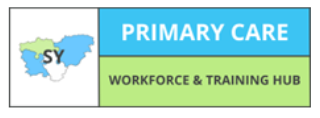
Asthma Review
Nursing Consultation Skills in Primary Care360 Video

Use this resource in conjunction with your real-world training
Share

Experience Summary
In this 360-degree video, observe as a patient attends with mum for newly diagnosed, asthma review.
Learning outcomes
1. Underpinning communication skills for assessing, planning, providing and managing best practice, evidence-based nursing care
- Actively listen, recognise and respond to verbal and non-verbal cues.
- Use prompts and positive verbal and non-verbal reinforcement.
- Use appropriate non-verbal communication including touch, eye contact and personal space.
- Make appropriate use of open and closed questioning.
- Use caring conversation techniques.
- Check understanding and use clarification techniques.
- Be aware of own unconscious bias in communication encounters.
- Write accurate, clear, legible records and documentation.
- Confidently and clearly present and share verbal and written reports with individuals and groups.
- Analyse and clearly record and share digital information and data.
- Provide clear verbal, digital or written information and instructions when delegating or handing over responsibility for care.
2. Evidence-based, best practice approaches to communication for supporting people of all ages, their families and carers in preventing ill health and in managing their care
- Use clear language and appropriate, written materials, making reasonable adjustments where appropriate in order to optimise people’s understanding of what has caused their health condition and the implications of their care and treatment.
- Support and manage the use of personal communication aids.
- Identify the need for and manage a range of alternative communication techniques.
- Assess motivation and capacity for behaviour change and clearly explain cause and effect relationships related to common health risk behaviours including smoking, obesity, sexual practice, alcohol and substance use.
- Provide information and explanation to people, families and carers and respond to questions about their treatment and care and possible ways of preventing ill health to enhance understanding.
- Engage in difficult conversations, including breaking bad news and support people who are feeling emotionally or physically vulnerable or in distress, conveying compassion and sensitivity.
3. Evidence-based, best practice communication skills and approaches for providing therapeutic interventions
- Talking therapies.
- Positive behaviour support approaches.
4. Evidence-based, best practice communication skills and approaches for working with people in professional teams
Further Discussion
- Providing nursing duties to a child when adult nursing trained.
- Safeguarding if parent overusing medication when not required.
- Secondary care support and involvement.
- Tools and assessments.
- Videos.
- Materials to be used for child’s understanding as well as parents.
- School nursing.
